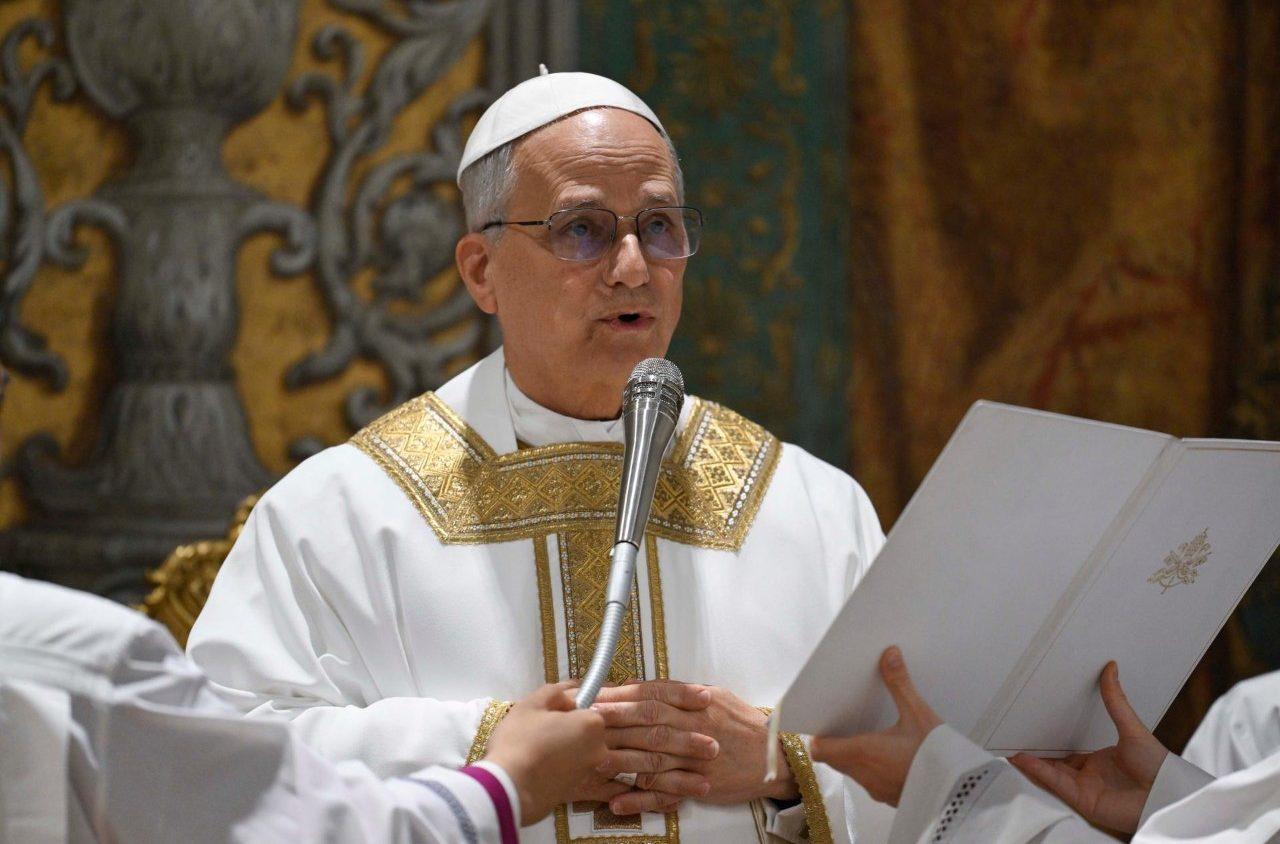In his first homily since his election on Thursday, Pope Leo XIV noted many people today view Jesus Christ as merely “a charismatic leader or superman.”
“This is true not only among non-believers but also among many baptized Christians, who thus end up living, at this level, in a state of practical atheism,” he told in his Mass with the cardinals of the Church in the Sistine Chapel on Friday.
Cardinal Robert Prevost was elected as the new pope on Thursday. It was a surprise for many, since he is an American, although he also has citizenship in Peru, where he served as bishop of Chiclayo from 2015 until 2023. He was appointed the head of the Dicastery for Bishops by Pope Francis in 2023, when he was made a cardinal.
“Jesus is the Christ, the Son of the living God: The one Savior, who alone reveals the face of the Father. In him, God, in order to make himself close and accessible to men and women, revealed himself to us in the trusting eyes of a child, in the lively mind of a young person and in the mature features of a man, finally appearing to his disciples after the resurrection with his glorious body,” the new pontiff told the cardinals on Friday.
“He thus showed us a model of human holiness that we can all imitate, together with the promise of an eternal destiny that transcends all our limits and abilities,” Leo XIV said.
The new pope is a member of the Augustinian order, in which he served as Prior General from 2001 to 2013.
He told the cardinal that in a particular way, “God has called me by your election to succeed the Prince of the Apostles, and has entrusted this treasure to me so that, with his help, I may be its faithful administrator for the sake of the entire mystical Body of the Church.”
Speaking as his role as the successor of Saint Peter, he reflects on the Gospel passage where Jesus asks the apostles, “Who do people say that the Son of Man is?” (Mt 16:13)
“The question is not insignificant. It concerns an essential aspect of our ministry, namely, the world in which we live, with its limitations and its potential, its questions and its convictions,” Leo said.
The pope noted St. Matthew tells us that this conversation between Jesus and his disciples takes place in the town of Caesarea Philippi, “filled with luxurious palaces, set in a magnificent natural landscape at the foot of Mount Hermon, but also a place of cruel power plays and the scene of betrayals and infidelity.”
“This setting speaks to us of a world that considers Jesus a completely insignificant person, at best someone with an unusual and striking way of speaking and acting. And so, once his presence becomes irksome because of his demands for honesty and his stern moral requirements, this ‘world’ will not hesitate to reject and eliminate him,” he said.
“Then there is the other possible response to Jesus’ question: That of ordinary people. For them, the Nazarene is not a charlatan, but an upright man, one who has courage, who speaks well and says the right things, like other great prophets in the history of Israel. That is why they follow him, at least for as long as they can do so without too much risk or inconvenience. Yet to them he is only a man, and therefore, in times of danger, during his passion, they too abandon him and depart disappointed,” Leo said.
“What is striking about these two attitudes is their relevance today. They embody notions that we could easily find on the lips of many men and women in our own time, even if, while essentially identical, they are expressed in different language,” he continued.
“Even today, there are many settings in which the Christian faith is considered absurd, meant for the weak and unintelligent. Settings where other securities are preferred, like technology, money, success, power, or pleasure,” the pope said.
Leo said these are contexts where it is not easy to preach the Gospel and bear witness to its truth, where believers are mocked, opposed, despised or at best tolerated and pitied.
“Yet, precisely for this reason, they are the places where our missionary outreach is desperately needed. A lack of faith is often tragically accompanied by the loss of meaning in life, the neglect of mercy, appalling violations of human dignity, the crisis of the family and so many other wounds that afflict our society,” he said.
“This is the world that has been entrusted to us, a world in which, as Pope Francis taught us so many times, we are called to bear witness to our joyful faith in Jesus the Savior. Therefore, it is essential that we too repeat, with Peter: ‘You are the Christ, the Son of the living God” (Mt 16:16). It is essential to do this, first of all, in our personal relationship with the Lord, in our commitment to a daily journey of conversion,” Leo said.















